A will contest occurs when a party challenges the validity of a will in court. As members of the eldest generation change their estate plans in later life with increasing frequency, will contests have become more common.
Florida law sets forth strict requirements for drafting and executing a valid will. These requirements reflect the solemnity of the last will, which is intended to dispose of the will-maker’s (or testator’s) property and secure his legacy. The grounds for contesting a will include lack of proper execution as well as substantive issues, as explained below:
Lack of Valid Execution
There are several requirements that all wills must meet in order to be considered valid. They are:
The testator must be at least 18 years old
The will must be in writing
The testator must sign at the end of the will or direct someone else to sign there in his presence
The will must be signed in the presence of two witnesses, who must also sign it in the presence of the testator and each other
The testator must be of sound mind (also called “testamentary capacity”)
If a court finds that the testator did not comply with any of these formalities in executing his will, then the will is generally held to be invalid.
Lack of Capacity
Florida case law defines “testamentary capacity” as the ability to mentally understand in a general way (1) the nature and extent of the property to be disposed of, (2) the testator’s relation to those who would naturally claim a substantial benefit from his will, and (3) a general understanding of the practical effect of the will as executed. Thus, a testator who has a general understanding of the effect of his last will has the requisite testamentary capacity even if he doesn’t understand all the legal implications of the document.
Fraud and Forgery
A will is procured by fraud when the testator is led to sign the document under false pretext (for example, he is told that he is signing a different document). A forged will is one that bears a forged signature. Forgery also encompasses editing and modifying a will after a testator has validly signed the document. Fraud and forgery claims commonly arise in the context of elderly testator.
Undue Influence
Undue influence occurs when someone coerces another individual to sign a testamentary document (such as a last will) such that he completely subjugates the free will of the testator. The following 3 elements are usually present in a successful claim for undue influence:
- the influencer derives a substantial benefit under the will
- the influencer was in a confidential relationship with the decedent
- the influencer was active in the procurement of the will
Revocation
The validity of a will may also be attacked if the challenger presents evidence that the will was revoked by a will or codicil executed at a later time. A will may also be revoked by physically destroying the document. Florida law presumes that, when an original will that is known to have existed cannot be located after the death of the decedent, the testator destroyed the will with the intent to revoke it.
Litigation of Will Contests
A will contest may be brought by any interested person, including “a beneficiary under a prior will.” Fla. Stat. § 733.109(1). An “interested person” is defined as “any person who may reasonably be expected to be affected by the outcome of the particular proceeding involved. The meaning, as it relates to particular persons, may vary from time to time and must be determined according to the particular purpose of, and matter involved in, any proceedings.” Fla. Stat. § 731.201(23).
The party challenging the validity of a will has the burden to prove that the will was not validly executed or does not reflect the intent of the testator. In order to prevail in the will contest, the challenger must present solid evidence in support of his claim. For a claim based on revocation, the will challenger will typically present a later-executed will or codicil. Evidence for a claim based on fraud or undue influence could include testimony of individuals who witnessed the preparation and execution of the will.
It is important to understand that the guiding principle of Florida probate law is the intent of the testator. This means that a person is generally free to devise his property to the beneficiaries of his choosing (subject to a spouse’s elective share). So, a testator’s choice not to devise his estate to his children is not in itself a valid ground for contesting the will. If, on the other hand, it can be shown that a testator was unduly influenced to will his property to his caretaker, then his child may prevail in his will contest.
Before challenging a will, it is also important to know how an estate will get distributed if a will is invalidated. In the absence of a will or another subsequently-executed testamentary document, a testator’s property passes according to the law of intestacy. Under this scheme, a testator’s property will go to his closest of kin in an order of priority as specified by Fla. Stat. § 731.101 – 732.111.
If you need a lawyer to represent you in a dispute over a will or an inheritance, contact Fort Lauderdale probate attorney John Clarke for a free consultation at (305) 467-5560.

